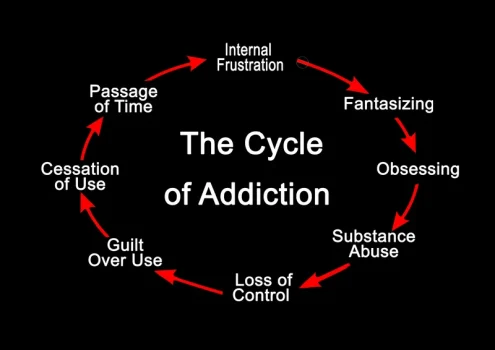
There is nothing you can do to prevent reactions to alcohol or to ingredients in alcoholic beverages, according to the Healthline website. The only way to avoid a reaction, is to avoid alcohol altogether, or at allergic reaction to alcohol least the particular substance that causes your reaction. The very essence of alcoholic beverages lies in the plants from which they derive – be it grapes, apples, juniper berries, coconuts, oranges, hops or malt. While these plant-derived allergens can theoretically trigger true allergic reactions, most are destroyed during processing. Individual sensitivity to histamine varies, and not everyone will experience allergic-like reactions to histamine-rich alcoholic beverages. Additionally, moderation and paying attention to personal tolerance levels can also be beneficial in managing histamine-related symptoms.
Related Conditions
This can occur due to changes in enzyme production, such as reduced levels of aldehyde dehydrogenase, or due to other health conditions like liver disease or medication side effects. Intolerance is different from an allergy and usually involves symptoms like flushing, nausea, or headache. Alcoholic drinks can also trigger an allergic reaction to food if you consume the two together, as alcohol can interfere with the gut lining.

Is alcohol intolerance the same as an alcohol allergy?
The liver first uses alcohol dehydrogenase (ADH) to break down ethanol into acetaldehyde, which is then converted into acetate by ALDH. That acetate, which is much less toxic than acetaldehyde, is then further broken down into water and carbon dioxide and eliminated from the body. In this article, we’ll briefly dive into the basics of alcohol intolerance, its symptoms, the diseases that may cause it, and how to test for this condition. People with grape allergies need to avoid wine and distilled spirits made with grapes, including cognac, ouzo, and vermouth.
- Read beverage labels to see whether they contain ingredients or additives you know cause a reaction, such as sulfites or certain grains.
- Anaphylaxis is a life threatening condition that involves a series of symptoms, such as a rash, low pulse, and shock.
- It is an inherited disorder, so it was passed down to you from your parents.
- Seeing an allergist can help you figure out what you’re allergic to.
- Antihistamines like Allegra (fexofenadine) and Zyrtec (cetirizine) can help alleviate histamine intolerance symptoms.
- If you develop symptoms after drinking alcohol, make an appointment with your doctor.
Alcohol Allergy Risk Factors

Dr. Parikh notes that clear alcohols like vodka, gin or blanco tequila have fewer allergens than other options like wine. Although she does add that your best bet is to not drink alcohol, or have it in very small amounts. But remember, consulting with a healthcare provider for proper diagnosis and advice is a key first step for anyone who suspects they may suffer from alcohol intolerance. Some drugs can exacerbate the symptoms of alcohol intolerance.
In this procedure, they will ask you to consume a sample of your suspected trigger. White wine tends to contain higher levels of sulfites than red wine and beer. Some types of sulfites might also trigger an asthmatic attack if you have asthma. It’s also found in many foods and beverages, especially fermented products. For example, aged cheese, smoked meats, sauerkraut, wine, and beer tend to be high in histamines.
Other types of intolerance

The same applies to distilled alcohol made from wheat if you have a wheat allergy. Alcohol intolerance and alcohol allergy may share certain symptoms, but they are two different conditions. The sudden development of alcohol intolerance is a common early symptom of CFS. Scientists have not yet identified the reason for this association. Alcohol intolerance is an immediate unpleasant reaction to consuming alcohol.

This figure represents people whose symptoms are traceable to what the manufacturers made the product from and its production process, not the alcohol itself. Just as grapes can become wine, table fruit that becomes too ripe might contain enough alcohol to cause a reaction in someone with an alcohol allergy. Some signs of anaphylaxis include swelling, itching, tightening of the throat and mouth, a weak or rapid pulse, fainting, shock, and loss of consciousness. Depending on the allergy severity, a person may Alcoholics Anonymous treat symptoms with over-the-counter medications, such as oral antihistamines, if the reaction is mild. Hodgkin lymphoma is a blood cancer that can affect a person’s lymphatic system.
Is alcohol intolerance treatable?
- Things get more complicated when it comes to distilled alcohol.
- While a mild allergic reaction could be treated by over-the-counter antihistamines, according to Healthline, it is best to contact a doctor for guidance.
- One older study in people with asthma found that over 40 percent of participants said that drinking alcohol prompted allergy or allergy-like symptoms.
- If you don’t know if you have alcohol intolerance or alcohol allergy, see your doctor or an allergist.
Although red wine is especially high in histamines, all alcoholic beverages have high levels of histamine. If you have histamine intolerance, you may experience worse symptoms after consuming alcohol with a high histamine content. Some health conditions can also cause alcohol intolerance, while others can cause increased alcohol sensitivity. Problems in the immune system cause an alcohol allergy to develop, while genetic problems in the digestive =https://ecosoberhouse.com/ system tend to cause alcohol intolerance. These problems make it difficult for the body to break down alcohol properly.


